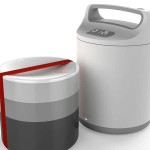A Guide to Food Expiration Dates

Perhaps the most surprising thing about expiration dating is that dating is not required by US federal law for any foods except infant formula and baby foods. Not only are expiration dates mandatory for these products, but these products must actually withdrawn by their expiration date. When it comes to dairy products, laws vary by state, but when it comes to all other foods everywhere, slapping an expiration date on the product is decided by only one entity: the manufacturer of that product.
As if that weren’t bad enough add to it this unnerving information. Well, unnerving unless you’re one of those types who think the government is already regulating big business too much. Even if the manufacturer is kind enough to let you know when his product will send you to the bathroom to sell Buuuuuicks or, worse, to the hospital, stores are not legally required to remove expired products from shelves.
There are three different types of expiration dates and, naturally, some are about as clear as extemporaneous remark by George W. Bush.
“Use by” means THIS is the expiration date. Don’t buy it if your Far Side daily calendar is set after this date. This is the only expiration guideline that means exactly what it says.
“Sell by” means that this is the date that stores who duly decided to protect their customers by removing expired food pull it off shelves by this date. But you can still buy it on this date and use it. Maybe. Usually. Sometimes. Seriously, though, some dairy products are still good up to a week after this date. In fact, milk generally remains safe to drink 7 to 10 days after the date on the label. Fresh meat, poultry and fish should be all cooked within 1 to 2 days of purchase, and should NEVER be purchased beyond the “sell by” date.
“Best if used by” means that the flavor or the quality of the product is adversely affected after this date. Of course, since any container of food is going to taste at least slightly different to whomever eats it, the term “best” is an abstract modifier at, well, best.
Of course, in most cases, the expiration date becomes meaningless once the container is opened because now the food has become perishable. At this point, your nose or tongue is probably the best guide for whether your food has expired or not.





